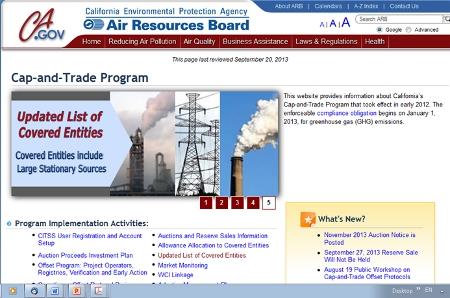Divergent Energy Policies: Germany and the United States
Policies and Energy Legislation
If industrialized countries take climate change seriously, renewable energy alternatives need to be stimulated through policy. The rationale for government involvement is that existing energy costs do not reflect the environmental and public health costs of fossil fuel use.
Government policies can directly seek to make fossil fuel prices better reflect their true costs (to incorporate environmental costs) through polices such as:
- Cap-and-trade for large fixed emitters (similar to European Economic Union approach)
- Carbon taxes (taxing fuels based on amount of carbon released in atmosphere when burned)
During first term, Obama Administration has pursued a “cap and trade” approach in its climate (energy) legislation. Passed the House but failed in the Senate in 2010 where detractors calling it the “cap and tax” approach.
While national policy initiatives have been limited, there is more activity at the level of the states. Cap-and-trade programs to reduce greenhouse gas emissions have been put in place:
- For electric utilities in ten New England states since 2005; and
- In California for large stationary sources since 2012 (see website above).
The EEU carbon trading system is modeled after a successful US program (EPA) to reduce the release of SO2 by utilities. As described in lecture earlier, here is how this "cap and trade" system works:


